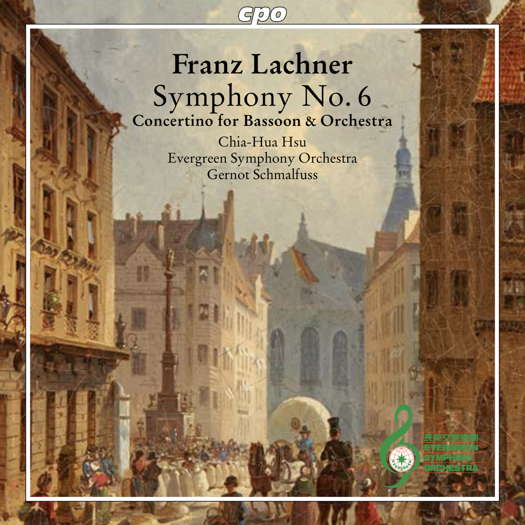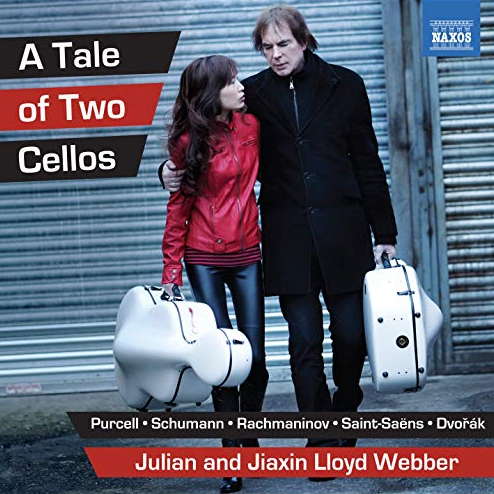- Giacomo Carissimi
- Domenico Carlo Maria Dragonetti
- Richard Blackford
- La Fenice
- Boris Lyatoshynsky
- Oxford May Music
- Joce Compton
- Cannock

Just Irresistible
Orchestral music by Franz Lachner, recommended by GERALD FENECH
'... memorable ... magical ... mesmerizing ...'
The German composer and conductor Franz Lachner was born in Rain am Lech on 2 April 1803 into a musical family. Indeed, his brothers Ignaz, Theodor and Vincenz also became musicians. He studied with Simon Sechter and Maximilian, the Abbé Stadler, and his first appointment was that of conductor at the Theatre am Karntnertor in Vienna. In 1834 he won first prize with his Fifth Symphony, following a competition in Vienna sponsored by Tobias Haslinger of the music publishing firm in which there were no fewer than fifty-seven entries. After he became Munich Kapellmeister his fame rose, and by now he was considered to be one of the major musical figures around. Commissions to conduct at the opera and various concerts and festivals arrived at a steady flow.
Then, suddenly, his career came to a halt when he was replaced by Wagner's disciple Hans von Bulow. Lachner remained officially in his post on extended leave for a few years until his contract expired. In the remaining years he devoted more time to conducting and composing, and by the time of his death on 30 January 1890 he had amassed a considerable number of works in various genres.
In his day Lachner was a prolific and well-known composer, but today his output does not set hearts pounding. His work, influenced by Beethoven and his great friend Schubert, is regarded as well-crafted and rich in melodic content, but the musical trends that started to set in soon after his demise quickly overshadowed his overtly romantic compositions.
Among his greatest hits one finds the opera Caterina Cornaro (1841), which preceded Donizetti's piece by three years, a Requiem and the seventh Suite for Orchestra. His organ sonatas, chamber music and particularly the music for wind instruments do receive decent attention, and some of his string quartets and eight symphonies have been performed and recorded. His songs, some of which are set to the same words Schubert used, are considered an important development in the history of the German Lied.
The premiere of the Sixth Symphony was held in Munich on 19 April 1837 with the composer conducting. The local press hailed it as a magnificent work and an outstanding masterpiece, where in this truly extraordinary creation Lachner produces a highly organic work in which motivic thematic developments are realized step by step. But more than the structure, what really makes this symphony memorable is the unique wealth of its melodic content.
From start to finish, the listener is regaled by a continuous cascade of captivating tunes, brimming with graceful charm.
Listen — Franz Lachner: Andante (Symphony No 6)
(track 2, 0:00-0:46) ℗ 2021 cpo :
Listen — Franz Lachner: Allegro con brio (Symphony No 6)
(track 4, 8:55-9:54) ℗ 2021 cpo :
The delightful Bassoon Concertino dates from 1824, and it was composed during Lachner's years in Vienna. He dedicated it to Theobald Hurth who was the principal bassoonist of the Vienna Court Opera Orchestra. There is some doubt whether Hurth ever performed it in public, and performances of it are not documented. This recording by Chia-Hua-Hsu is a premiere, thus giving music lovers a chance to listen to what is possibly Lachner's first work for orchestra.
Listen — Franz Lachner: Andante (Bassoon Concertino)
(track 6, 0:00-0:56) ℗ 2021 cpo :
In all truth, I am struggling to find the adequate adjectives to describe these performances. Well, I guess ... memorable ... magical ... mesmerizing ... will fit the bill perfectly.
Listen — Franz Lachner: Allegretto (Bassoon Concertino)
(track 7, 6:17-7:14) ℗ 2021 cpo :
Hugely exciting stuff in pristine sound quality and eye catching presentation. Certainly one of my discs of the year.
Copyright © 4 September 2021
Gerald Fenech,
Gzira, Malta

CD INFORMATION - FRANZ LACHNER: SYMPHONY NO 6




